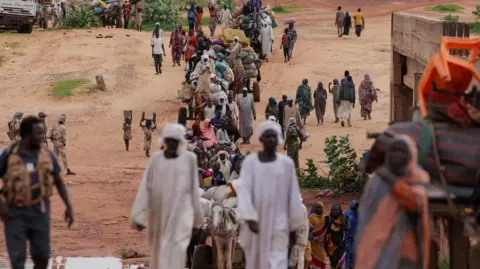In a historic win, Kamel Daoud has become the first Algerian author to receive France's esteemed Goncourt literary prize for his powerful novel "Houris." This work encapsulates the harrowing experiences of Algeria’s civil war during the 1990s, a period marked by significant violence and societal trauma resulting in up to 200,000 deaths.
"Houris" follows the journey of Fajr, a woman who survives a brutal attack and now uses a speaking tube to relay her painful story to the unborn child she carries. The Goncourt committee praised the novel for illuminating the suffering endured during Algeria's “dark decade,” highlighting its importance in giving voice to women's experiences and challenging the collective memory of the nation.
Ironically, despite its critical acclaim, the book may not reach many Algerians as it lacks a local publisher, and Daoud himself has been excluded from Algeria’s literary events. Furthermore, incoming reports reveal that official media in Algeria have largely ignored his recognition. The atmosphere around Daoud is stark; he faces potential legal repercussions under a 2005 law that criminalizes any discourse perceived as exploiting national tragedies, effectively silencing discussions about the civil war.
Daoud, a former journalist who lived through the atrocities, shared the challenges he faced in an environment where his daughter remained unaware of the country’s traumatizing past, as history is seldom taught in schools. His painful recollections of the horrors he witnessed have been tempered by the need to protect his audience from disbelief.
Labeling him either a traitor or an artistic genius, the Algerian public remains divided on Daoud, who has been critical of the government's reinterpretation of the independence struggle and the ongoing marginalization of women in society. Daoud hopes that "Houris" will prompt critical reflection on the historical sacrifices made for freedom, especially regarding women's rights in Algeria.
Following his relocation to Paris in 2020, Daoud described how the French environment afforded him the freedom to fully express his thoughts in "Houris." As he contemplates his place between two cultures, he acknowledges the complexity of his identity as a Franco-Algerian, woven together by both love and bitterness. In a post-award press conference, he affirmed the essential ingredients for a writer's success: “a table, a chair, and a country.” And for Daoud, France has provided that refuge.


















